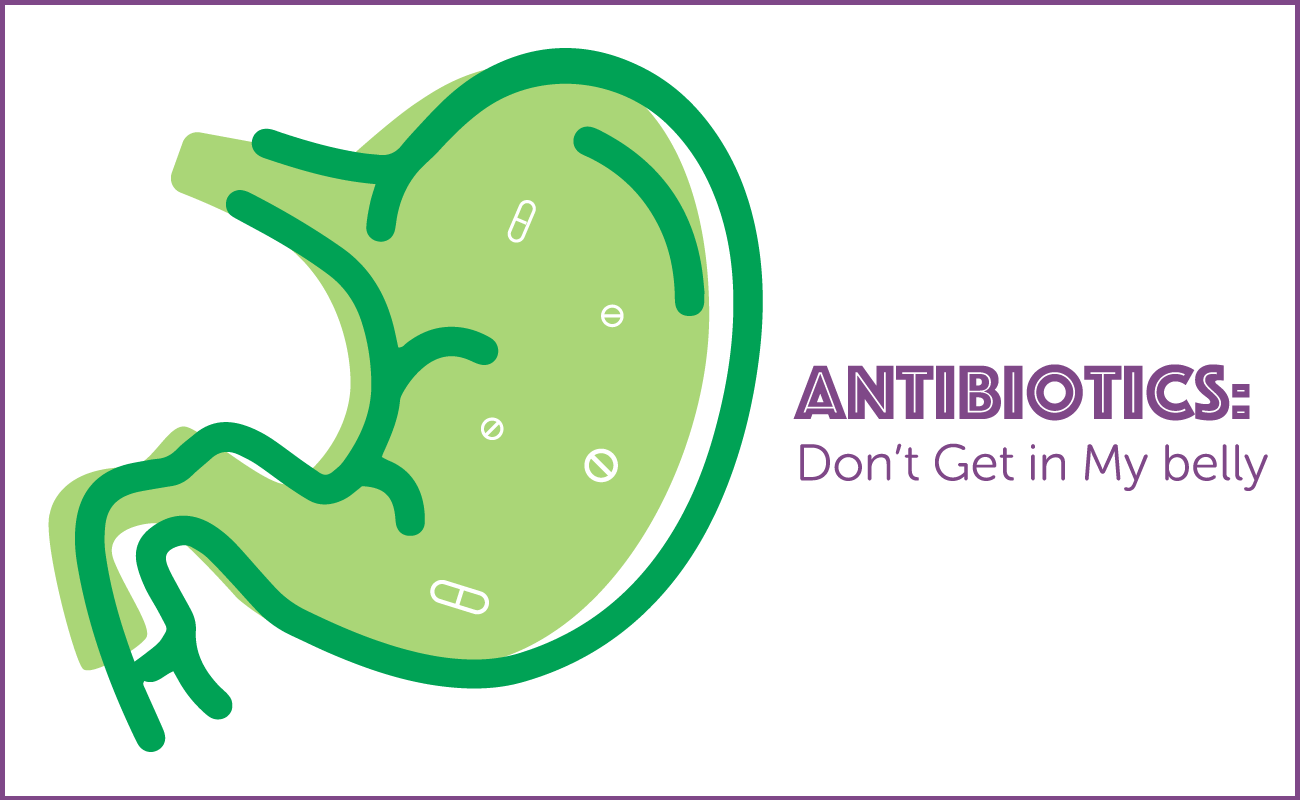Antibiotics: Don’t Get in My Belly

Antibiotics are powerful medications that can treat several bacterial infections when used appropriately. Unfortunately, they’re often used when they shouldn’t be, causing more harm than some may think.

Using an antibiotic when you don’t need one can encourage the development of antibiotic-resistant bacteria that is a threat to you, your loved ones, and the community. Treating resistant bacteria requires higher doses of medicine and stronger antibiotics. Antibiotic-resistant infections can lead to longer-lasting and more severe illness, hospitalizations, and worse in extreme cases.

In addition to resistance, the overuse of antibiotics can also lead to other problems. Antibiotics kill all types of bacteria – the “bad” bacteria causing the illness, and “good” bacteria that keeps the body healthy and helps the stomach digest food properly.
There are at least 500 species of bacteria in the human gut! Bacteria found naturally in your gut have an important protective function against other living organisms or harmful bacteria that may enter your body. It has been shown that too few bacteria in the gut can throw your immune system off balance, increasing susceptibility to antibiotic-resistant bacteria and pathogens.
Studies have shown that infants and children who didn’t have diverse colonies of gut bacteria are more likely to develop allergies.
In some cases, bad bacteria may overgrow and cause other types of infections. Studies have shown that children given antibiotics are most susceptible to aggressive antibiotic-resistant strains of a bacteria commonly known as C. diff, which can cause severe diarrhea and leads to many hospitalizations and deaths each year among children and adults.

The intestinal bacteria also plays a role in our body’s metabolism. When antibiotics are given early in life, they can disrupt the composition of the intestinal bacteria, and consequently the bacteria’s metabolic activity, which can promote weight gain.
Studies have also shown that antibiotics have a significant effect on the body’s hunger hormone, called ghrelin. It’s secreted in the lining of the stomach and sends signals to the brain that makes us want to eat. When our ghrelin levels are high, we tend to eat more, which can inevitably lead to weight gain

So what can you do to make sure you’re using antibiotics appropriately? It starts by having an open conversation with your doctor when you’re sick. Antibiotics are designed to fight bacterial illnesses. They do not work for viral illnesses such as the common cold, the flu, and most cases of bronchitis. Talk to your doctor about what type of illness you have and what treatment will work best. Sometimes symptom relief, such as rest, hydration, and over-the-counter products, really is the best medicine.
 The Daily Dose
The Daily Dose
Comments are closed.